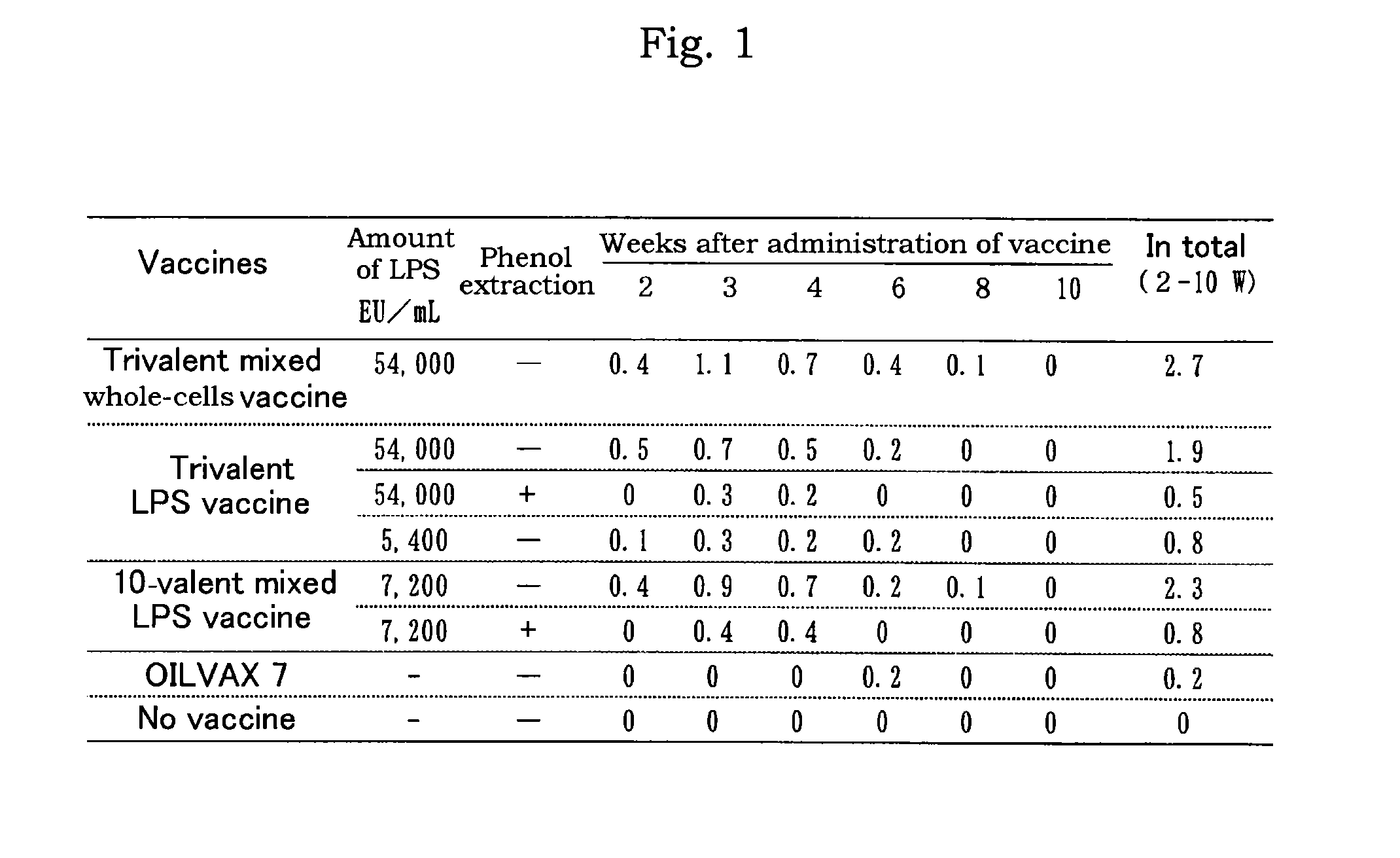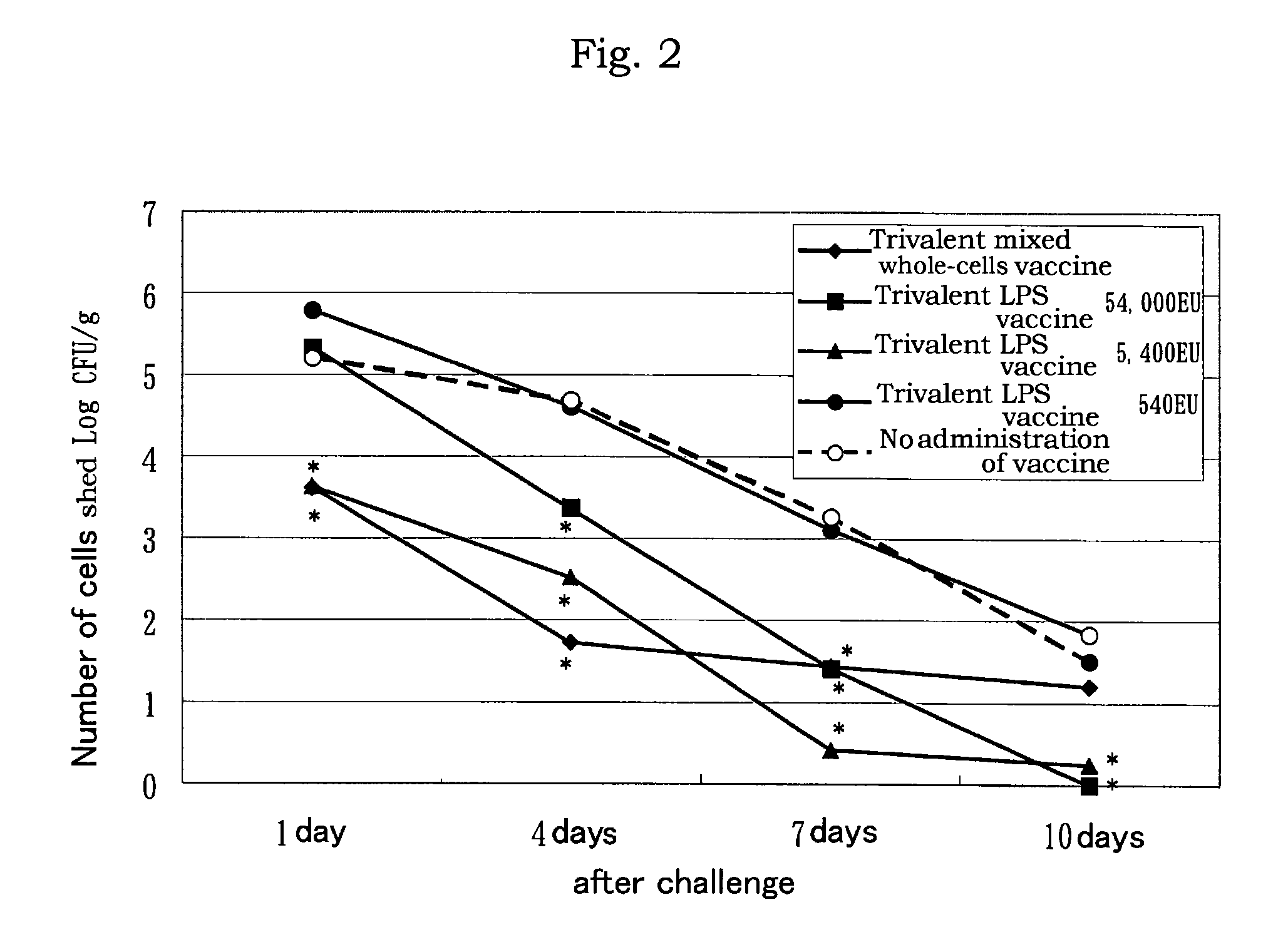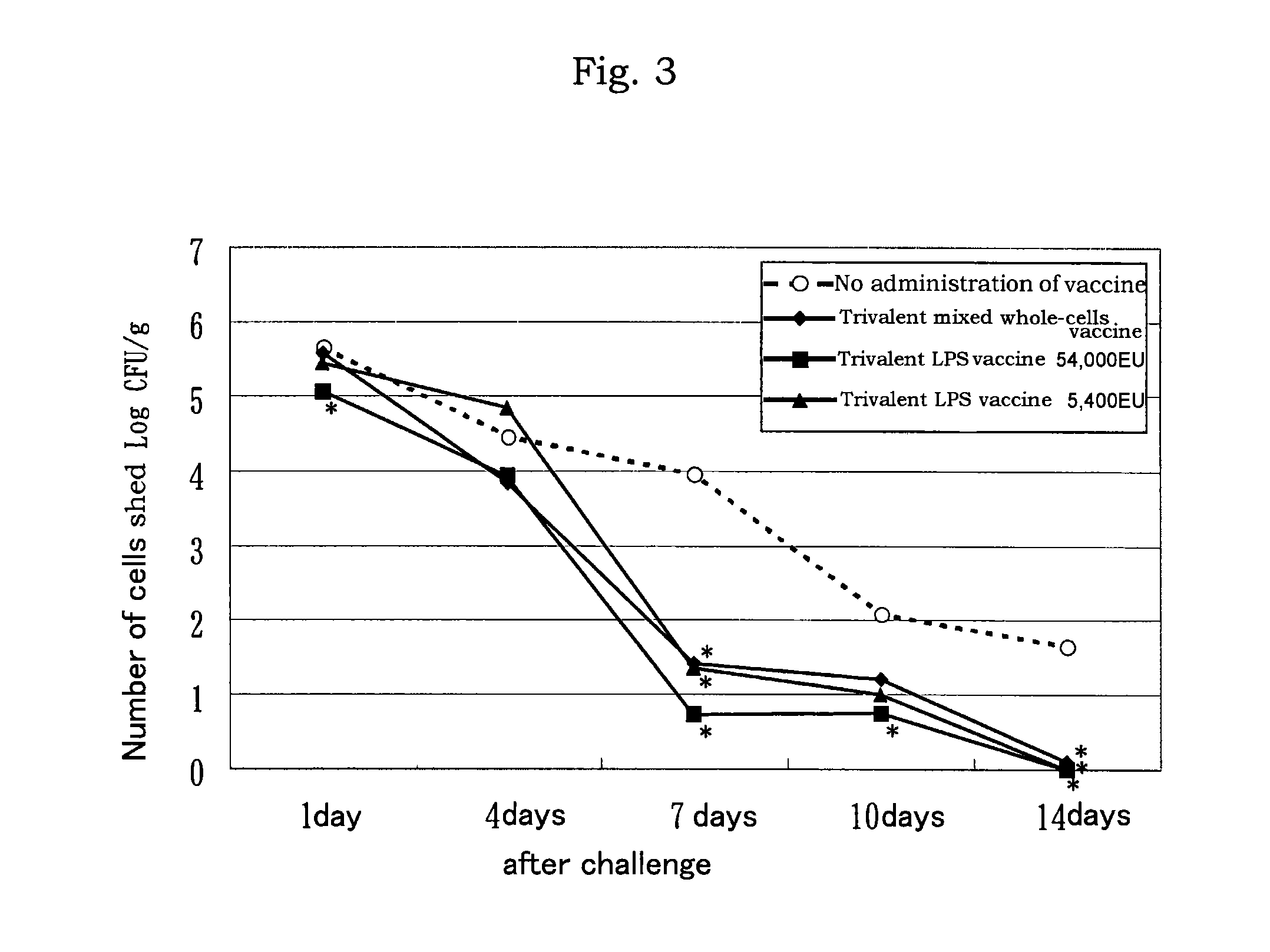LPS vaccine
a vaccine and lps technology, applied in the field of vaccines, can solve the problems of side effects, vaccine reaction at the injection site, septic diseases in young chicks, etc., and achieve the effect of reducing swelling at the injection site and increasing the number of other antigens to be mixed
- Summary
- Abstract
- Description
- Claims
- Application Information
AI Technical Summary
Benefits of technology
Problems solved by technology
Method used
Image
Examples
example 1
(1) Preparation of Antigen
1) Step of Culture
[0081]On each 50 mL of LB medium (comprising sodium chloride 10 g, Bact Tryptone 10 g, Bact Yeast Extract 5 g in 1,000 mL of culture medium), Salmonella Enteritidis (hereinafter referred to as “SE”), Salmonella Infantis (hereinafter referred to as “SI”), and Salmonella Typhimurium (hereinafter referred to as “ST”) were cultured (37° C., 16 to 24 hours, 4×108 to 4×109 CFU / mL).
2) Step of Inactivation
[0082]Formalin was added to the respective culture at O.4% formalin for treatment at 37° C. for 16 hours to inactivate the cells.
3) Step of Release
[0083]The inactivated cells were subject to ultrasonic crushing or treated with phenol to release lipopolysaccharide.
[0084]Ultrasonic crushing (Branson, Sonifier 350) of the cells was carried out in ice water for 15 minutes. Then, centrifugation (TOMY SEIKO Co, Ltd., 10,000×g, 15 minutes) was performed and supernatant was used in the step of collection.
[0085]The phenol treatment of the cells was carrie...
example 2
(1) Preparation of Antigen
[0093]The vaccine prepared in Example 1 comprising each 54,000 EU / mL of lipopolysaccharides derived from SE, ST, or SI was mixed with OILVAX 7 (registered trademark; The Chemo-Sero-Therapeutic Research Institute; comprising infectious bronchitis virus Nerima strain, TM strain, Mycoplasma gallisepticum, Egg drop syndrome virus, and infectious coryza A and C (recombinant antigen)). The resultant mixture was 10-valent mixed LPS vaccine comprising each 7,200 EU / mL of lipopolysaccharides derived from SE, ST, or SI, 108.4 EID50 / mL or more of Newcastle disease virus, 106.4 EID50 / mL or more of infectious bronchitis virus Nerima strain, 106.4 EID50 / mL or more of TM strain, 107.4 EID50 / mL or more of Mycoplasma gallisepticum, 106′7 EID50 / mL or more of Egg drop syndrome virus, and 2.4 μg / mL or more of infectious coryza A and C (recombinant antigen).
(2) Immunization Test
[0094]Each 0.5 mL of the 10-valent mixed LPS vaccine prepared above was administered to 5-week old SP...
PUM
| Property | Measurement | Unit |
|---|---|---|
| wavelengths | aaaaa | aaaaa |
| wavelengths | aaaaa | aaaaa |
| equivalent volume | aaaaa | aaaaa |
Abstract
Description
Claims
Application Information
 Login to View More
Login to View More - R&D
- Intellectual Property
- Life Sciences
- Materials
- Tech Scout
- Unparalleled Data Quality
- Higher Quality Content
- 60% Fewer Hallucinations
Browse by: Latest US Patents, China's latest patents, Technical Efficacy Thesaurus, Application Domain, Technology Topic, Popular Technical Reports.
© 2025 PatSnap. All rights reserved.Legal|Privacy policy|Modern Slavery Act Transparency Statement|Sitemap|About US| Contact US: help@patsnap.com



